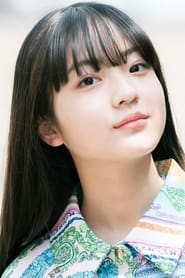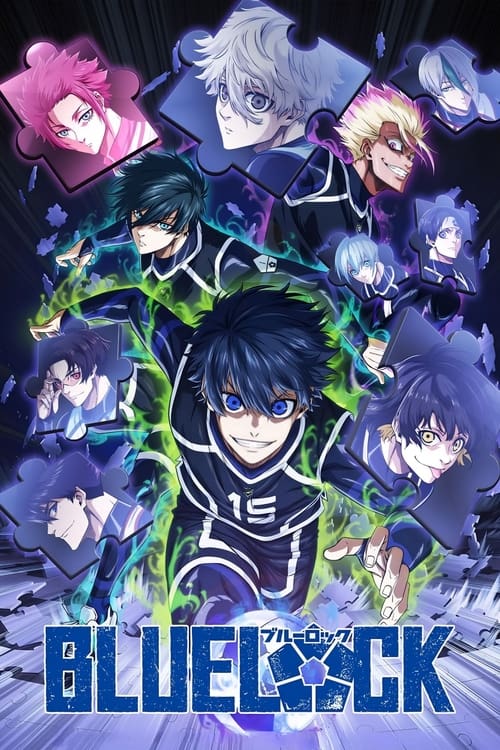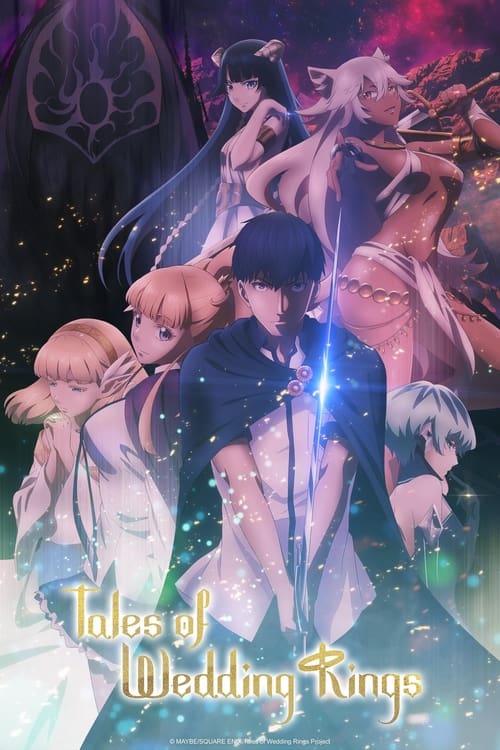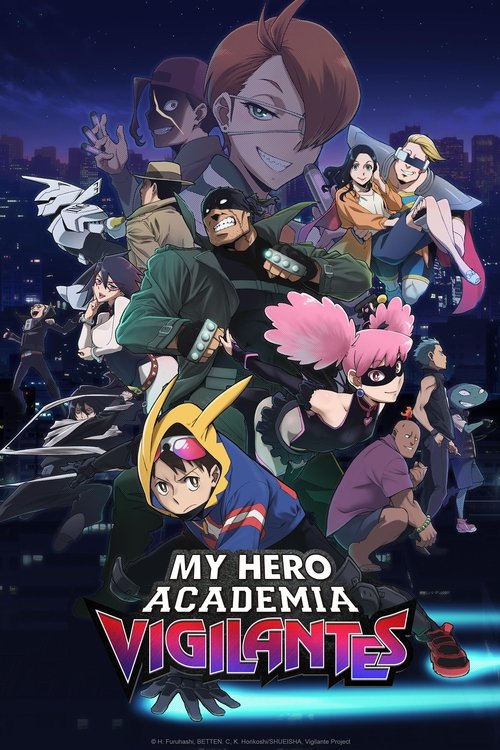
Ask Your Own Question
What is the plot?
The episode opens with a bustling high school environment as students prepare for graduation day. The camera pans through the hallways filled with excited chatter, colorful decorations, and students in their graduation attire. Among them is Kamiya Utako, a seemingly ordinary girl who is noticeably absent from the excitement. She is seen sitting alone in a quiet corner, her expression a mix of anxiety and determination.
As the ceremony approaches, Utako reflects on her time at school, revealing through her internal monologue that she has been struggling with feelings of inadequacy and the pressure to conform to her peers' expectations. She feels disconnected from the celebratory atmosphere, haunted by the fear of not being recognized or remembered. This emotional turmoil is visually represented through close-ups of her fidgeting hands and her distant gaze.
The scene shifts to the graduation ceremony itself, where students gather in the auditorium. The principal delivers a heartfelt speech about the future and the importance of cherishing memories. Utako, however, remains detached, her mind racing with thoughts of her own insecurities. As her classmates cheer and celebrate, she feels increasingly isolated, highlighting her internal conflict.
Suddenly, a commotion arises as Utako's best friend, who has been searching for her, bursts into the auditorium. She frantically calls out for Utako, drawing attention to her absence. This moment serves as a turning point for Utako, who realizes that her friend genuinely cares about her. The emotional weight of this realization is palpable, and the camera captures Utako's conflicted expression as she grapples with her desire to be seen versus her fear of vulnerability.
In a moment of courage, Utako decides to leave her secluded spot and join her classmates. As she walks down the aisle, the atmosphere shifts; the music swells, and the focus turns to her. The students notice her presence, and a wave of applause erupts. This unexpected acknowledgment fills Utako with a mix of surprise and joy, and she begins to smile, her earlier anxieties momentarily forgotten.
As the ceremony continues, Utako's friend stands by her side, offering support and encouragement. They share a heartfelt conversation about their dreams and aspirations, reinforcing their bond. Utako expresses her fears about the future, but her friend reassures her that they will face it together. This exchange is filled with warmth and sincerity, showcasing the strength of their friendship.
The episode culminates in a powerful moment when Utako is called to the stage to receive her diploma. As she approaches the podium, the audience's applause grows louder, and she takes a deep breath, finally embracing the moment. Standing before her peers, she delivers a brief but heartfelt speech about the importance of being true to oneself and the value of friendship. Her words resonate with the audience, and the scene captures the emotional weight of her journey toward self-acceptance.
The episode concludes with Utako stepping off the stage, a newfound sense of confidence radiating from her. She rejoins her friends, who celebrate her achievement, and the camera pulls back to show the vibrant atmosphere of the graduation ceremony, symbolizing a new beginning for Utako as she embraces her identity and the support of those around her.
What is the ending?
In the ending of "Kamiya Utako Is Not at the Graduation Ceremony," the main character, Utako, ultimately decides not to attend her graduation ceremony. Instead, she reflects on her journey and the relationships she has built throughout her school years. The episode concludes with her standing alone, contemplating her choices and the future ahead, while her friends celebrate their achievements without her.
As the episode draws to a close, the scene shifts to the graduation ceremony itself. The auditorium is filled with students dressed in their caps and gowns, a sea of excitement and anticipation. The camera pans over the crowd, capturing the joyful faces of Utako's classmates as they prepare to receive their diplomas. The atmosphere is charged with a mix of pride and nostalgia, underscored by the soft strains of a graduation march playing in the background.
Meanwhile, Utako is seen sitting on a bench outside the school, her expression a blend of contemplation and sadness. She watches as her friends enter the auditorium, their laughter echoing in the air. Internally, she grapples with feelings of isolation and uncertainty about her future. The weight of her decision not to attend the ceremony hangs heavily on her, as she reflects on the friendships that have shaped her high school experience.
As the ceremony progresses, the camera cuts back and forth between the jubilant celebration inside and Utako's solitary figure outside. Her friends, including her closest companion, express their disappointment that she is not there, but they also understand her need for space. This moment highlights the bond they share, even in her absence. The speeches from the faculty resonate with themes of growth and moving forward, contrasting sharply with Utako's internal struggle.
In the final moments, as the ceremony concludes, Utako stands up from the bench, taking a deep breath. She watches her friends throw their caps into the air, a symbol of their shared achievement and the end of an era. A bittersweet smile crosses her face as she realizes that while she may not be part of the celebration, she is still connected to her friends and their experiences. The episode ends with her walking away from the school, a sense of determination in her stride, hinting at her readiness to face whatever comes next.
In summary, Utako's fate is one of introspection and personal growth. She chooses to step away from the traditional celebration, reflecting her unique journey and the complexities of her emotions. Her friends, while celebrating their accomplishments, carry a sense of understanding for her choice, emphasizing the theme of individual paths and the importance of self-discovery.
Is there a post-credit scene?
In "Kamiya Utako Is Not at the Graduation Ceremony," Season 1, Episode 1, there is indeed a post-credit scene. After the main credits roll, the scene opens with a quiet, sunlit classroom, where a few students are packing their bags, their voices a soft murmur of excitement and nostalgia. The camera pans to a window, where the gentle breeze rustles the curtains, creating a serene atmosphere.
Suddenly, the focus shifts to a figure standing outside the school gate, partially obscured by the trees. It's Kamiya Utako, her expression a mix of determination and uncertainty. She clutches a bouquet of flowers tightly, her knuckles white against the vibrant colors. The scene captures her internal struggle; she wants to be part of the celebration but feels an overwhelming sense of isolation.
As she takes a deep breath, the camera zooms in on her face, revealing a flicker of hope in her eyes. Just as she seems ready to step forward, the scene cuts to black, leaving viewers with a lingering sense of anticipation about her next move and the emotional journey she is about to undertake. The post-credit scene effectively encapsulates Utako's internal conflict and sets the stage for her character development throughout the series.
What role does the graduation ceremony play in Utako's character development?
The graduation ceremony serves as a pivotal moment for Utako's character development. It symbolizes a transition and the culmination of her school life, which she feels unprepared to face. Her absence from the ceremony forces her to confront her fears and ultimately leads to a moment of self-realization about her need for connection and support.
What is the reason for Kamiya Utako's absence at the graduation ceremony?
Kamiya Utako is absent from the graduation ceremony due to her overwhelming anxiety and fear of facing her peers. Throughout the episode, it is revealed that she struggles with feelings of inadequacy and the pressure of expectations, which ultimately leads her to hide away instead of participating in the celebration.
How do Utako's friends react to her absence during the ceremony?
Utako's friends express concern and confusion over her absence. They initially assume she is simply running late, but as the ceremony progresses, their worry deepens. They discuss their memories of Utako and reflect on her struggles, showcasing their loyalty and desire to support her.
What internal conflicts does Utako face throughout the episode?
Utako grapples with intense feelings of self-doubt and isolation. She reflects on her past experiences, feeling disconnected from her classmates and questioning her worth. This internal struggle is depicted through her flashbacks and emotional turmoil, highlighting her desire for acceptance while battling her fears.
How does the episode portray the theme of friendship in relation to Utako's situation?
The episode portrays friendship as a crucial support system for Utako. Her friends' concern and their discussions about her highlight the importance of understanding and empathy. They represent the safety net that Utako lacks in her own self-perception, emphasizing that true friendship involves being there for one another, especially during difficult times.
Is this family friendly?
"Kamiya Utako Is Not at the Graduation Ceremony," season 1, episode 1, is generally family-friendly, but it does contain some themes and scenes that may be sensitive for children or more sensitive viewers.
-
Emotional Themes: The episode explores feelings of disappointment and sadness, particularly surrounding graduation and the absence of a key character, which may resonate deeply with viewers who have experienced similar feelings.
-
Social Anxiety: There are moments depicting social anxiety and the pressure of expectations, which could be relatable but might also be upsetting for some viewers.
-
Character Struggles: The main character grapples with feelings of isolation and the fear of not being accepted, which could be distressing for younger audiences or those sensitive to themes of loneliness.
-
Absence and Loss: The overarching theme of someone missing from a significant event may evoke feelings of loss or longing, which could be poignant for some viewers.
Overall, while the show addresses serious emotional topics, it does so in a way that is suitable for a family audience, but parental guidance may be advised for younger viewers.































